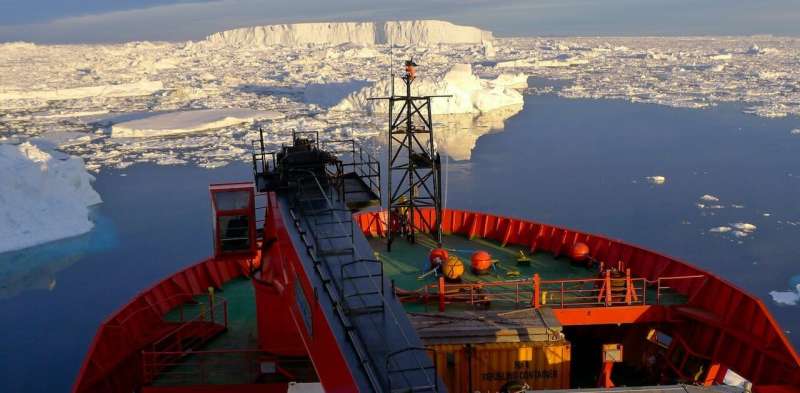
We found melting of Antarctic ice is disrupting the formation of Antarctic bottom water. The meltwater makes Antarctic surface waters fresher, less dense, and therefore less likely to sink. This puts the brakes on the overturning circulation.
The findings are striking. Over three decades, between 1992 and 2017, the overturning circulation of this region slowed by almost a third (30%) causing less oxygen to reach the deep.
More ice loss will mean more freshening, so we can anticipate the slowdown in circulation and deep oxygen losses will continue.
The consequences of a slowdown will not be limited to Antarctica. The overturning circulation extends throughout the global ocean and influences the pace of climate change and sea level rise. It will also be disruptive and damaging for marine life.